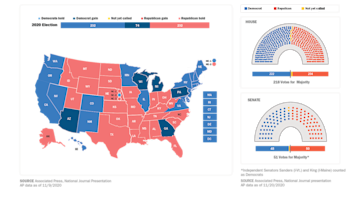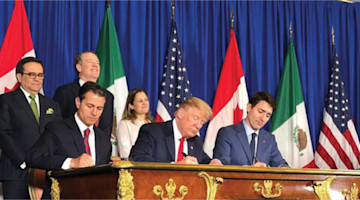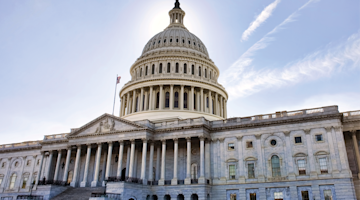As AMT reported in its July/August newsletter, I’ve been serving as a ASME Congressional Fellow since June in the office of Sen. Marco Rubio, R-Fla., the chair of the U.S. Senate Committee on Small Business and Entrepreneurship (SBC). The SBC develops legislation to strengthen small businesses, including small- and medium-sized manufacturers (SMMs), through actions such as improving access to capital, federal contracting, trade and export support, and financing.
Were it not for the COVID-19 pandemic, my work would have largely focused on several long-term projects related to SMMs. Although I’m not at liberty to discuss anything currently in negotiation, it is safe to say that the vast majority of my work right now is involved in current and future legislation designed to help small businesses and industries such as manufacturing because of the economic repercussions of the pandemic.
The SBC is very much involved in the Coronavirus Aid, Relief, and Economic Security (CARES) Act, the Paycheck Protection Program (PPP), and Economic Injury Disaster Loans (EIDL). My work with staffers focuses on legislation that is “right sized” and written accurately and clearly in consideration of disproportionately impacted industries such as accommodation, travel, retail, and manufacturing, including women-and-minority-owned businesses. All three pieces of legislation are multifaceted and complex; the CARES Act, primarily through the PPP, is the largest economic stimulus package in U.S. history.
We work to ensure that the right language, the right incentives, and the right priorities are included in proposed legislation. For example, my role is to talk to industry experts and other stakeholders to get feedback about whether a specific section in a proposed bill would help or hurt manufacturers, or could it have an unintended negative consequence that would exacerbate a current challenge in manufacturing? The SBC highly depends on – and thus welcomes – industry’s voice through published reports, interviews, and congressional hearings.
Part of the data collection and fact finding that I do includes higher-level conversations with industry leaders, AMT board members and executives, executives at other manufacturing associations, and experts from universities – a diverse group with broad industry experience from around the country. Are concepts too weak or too strong, too limiting or too broad? Will it have its intended effect? What additional perspectives do they have, or do they have recommendations? Committee staff want to feel confident that the legislative direction and solutions they are proposing will be effective. In some cases, there may also be a need to better understand what has happened historically, economically, or legislatively around past pieces of legislation so that past mistakes or misunderstandings are not repeated.
I have been very impressed with the committee staffers, who are all extremely intelligent, highly focused, and resolute. They are relentless in negotiations to prepare for a hearing or a floor debate or to ultimately introduce a bill. I see the sincerity in committee members and staffers who really do care about Americans, their businesses, and particularly SMMs; manufacturing still very much enjoys bipartisan support.
A unique aspect of my fellowship is that Rubio also serves as the acting chair of the Senate Select Committee on Intelligence (SSCI), so the information and data that I provide to him and the SBC, when relevant, may also have impact within the SSCI.





